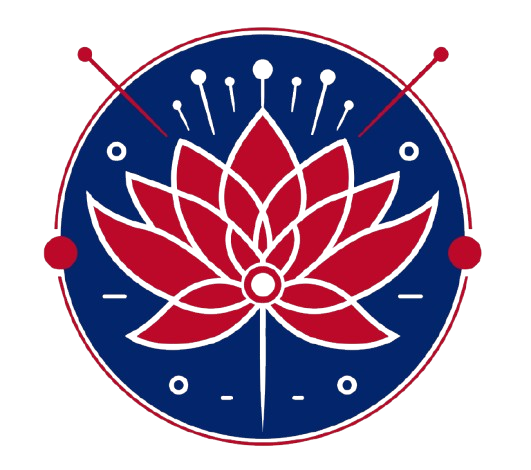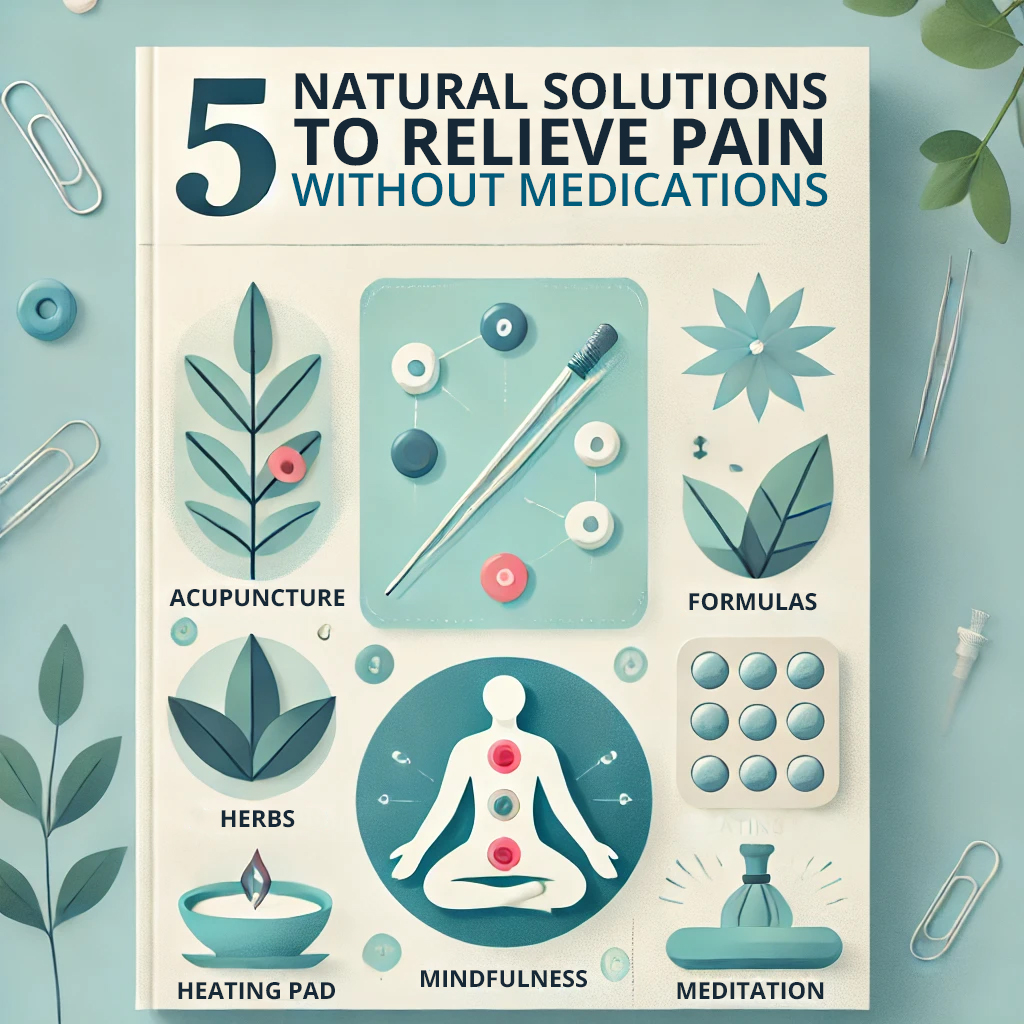You’re likely seeking a natural solution to alleviate your debilitating menstrual pain, and acupuncture may be the answer you’ve been looking for, as research has consistently shown its effectiveness in reducing dysmenorrhea symptoms. A recent St. Pete case study explored the efficacy of acupuncture and Chinese herbal medicine in alleviating dysmenorrheic symptoms, and the results were promising – participants experienced substantial decreases in menstrual pain. By targeting root causes like muscular tension and trigger points, acupuncture can provide long-term relief, and its benefits don’t stop there, as you’ll discover how this holistic approach can also impact your overall well-being.
Key Takeaways
- A St. Pete case study found that acupuncture and Chinese herbal medicine substantially decreased menstrual pain in participants with primary dysmenorrhea.
- Acupuncture targets root causes like muscular tension and trigger points, leading to long-term relief from dysmenorrheic symptoms.
- The integration of techniques like electrical stimulation can enhance pain relief through increased release of natural pain-relieving chemicals.
- The study’s findings suggest that acupuncture and Chinese herbal medicine are a viable alternative to traditional treatments, offering a safe and effective way to manage primary dysmenorrhea.
- Acupuncture has been shown to be more effective than ibuprofen in reducing menstrual pain, providing a promising natural solution for women.
Understanding Dysmenorrhea Symptoms
You’re likely no stranger to dysmenorrhea symptoms, as they affect up to three-quarters of women at some point in their reproductive lives. These symptoms can be debilitating, impacting daily life and overall well-being. Primary dysmenorrhea, the most common form of period pain, is characterized by cramping pain in the lower abdomen. This pain is often accompanied by other menstrual-related symptoms such as back and thigh pain, headaches, diarrhea, nausea, and vomiting. In addition, herbal medicine expertise can provide a natural approach to addressing these symptoms, utilizing over 350 Chinese raw herbs and 150 traditional formulas for natural healing Traditional Chinese Medicine principles. You might experience mood changes, with feelings of anxiety or irritability. The physical discomfort can be intense, with increased amounts of prostaglandins in the menstrual fluid stimulating uterine contractions and reducing blood flow, leading to painful cramping. Vital to acknowledge is that menstrual pain is a significant women’s health issue, with far-reaching medical, social, and economic consequences. Understanding dysmenorrhea symptoms is pivotal in seeking effective treatment and managing this condition.
Alternative Treatment Options
Embracing a more holistic approach, alternative treatment options for dysmenorrhea are gaining recognition as a viable solution for women seeking relief from menstrual pain. You’re not alone in your search for a more natural way to manage primary dysmenorrhea. Acupuncture, a key component of traditional Chinese medicine, has been shown to provide effective pain relief. In fact, acupuncture is recognized by the World Health Organization (WHO) for treating various conditions, including pain pain management. Research has demonstrated that acupuncture can regulate neuro-endocrine activities, increasing ovarian blood flow and alleviating dysmenorrheic symptoms. In fact, a recent review of 30 RCTs found that acupuncture-related modalities provided significant benefits for women with dysmenorrhea. Additionally, acupuncture has been shown to be more effective than ibuprofen in reducing menstrual pain. By incorporating acupuncture into your treatment plan, you may find a safer and more natural alternative to conventional medications. As you explore alternative treatment options, remember that acupuncture is a holistic approach that can provide long-term relief from menstrual pain, improving your overall well-being.
St. Pete Case Study Results
A recent case study at Elite Care Clinic & Alternative Medicine in St. Petersburg, Florida, explored the efficacy of acupuncture and Chinese herbal medicine in alleviating dysmenorrheic symptoms. You’re likely enthusiastic to know how this treatment approach fared in reducing menstrual pain. The results are promising: the combination of tailored acupuncture and herbal remedies substantially decreased menstrual pain in participants with primary dysmenorrhea. Additionally, the study’s findings align with the understanding that acupuncture targets root causes like muscular tension and trigger points, leading to long-term relief St. Petersburg’s Best Approach. Moreover, the integration of techniques like electrical stimulation, as seen in the case study, can enhance pain relief through increased release of natural pain-relieving chemicals. This integrated approach not only alleviated physical discomfort but also improved overall well-being. You may wonder how this treatment differs from conventional methods. Unlike pharmaceuticals, acupuncture and Chinese herbal medicine offer a natural, non-invasive solution that addresses the root causes of dysmenorrhea. By restoring balance to your body’s energy, or qi, these treatments can provide long-term relief from menstrual pain. The study’s findings suggest that acupuncture and Chinese herbal medicine are a viable alternative to traditional treatments, offering a safe and effective way to manage primary dysmenorrhea. As you consider your options, remember that this holistic approach can help you regain control over your menstrual health.
How Acupuncture Relieves Pain
Frequently, women with primary dysmenorrhea have turned to acupuncture as a natural, effective way to alleviate menstrual pain. You’re likely wondering how this ancient practice can provide relief from the discomfort associated with dysmenorrhea. The answer lies in the way acupuncture interacts with your body’s natural pain-relieving mechanisms. When fine needles are inserted at specific points, such as Sanyinjiao (SP6), it stimulates the release of endogenous opioids, which helps to reduce pain and discomfort. Additionally, acupuncture may regulate neuro-endocrine activities, including levels of progesterone, which can contribute to pain relief. In fact, acupuncture has also been shown to reduce stress and anxiety, fostering relaxation and a calm mind holistic insomnia treatment, which can further contribute to overall pain relief. Studies have shown that acupuncture can reduce menstrual pain intensity by 50% in women with primary dysmenorrhea. In fact, one study found that acupuncture resulted in a significant reduction in menstrual pain duration and need for additional analgesia compared to sham acupuncture. By incorporating acupuncture into your treatment plan, you can experience meaningful pain relief and improve your overall well-being.
A Natural Solution for Women
As you explore alternative approaches to managing dysmenorrhea, you’ll find that acupuncture offers a natural, effective solution tailored to your unique needs. Unlike conventional treatments, acupuncture doesn’t rely on medications or invasive procedures, making it an attractive option for women seeking a more holistic approach. Research has consistently shown that acupuncture can provide significant relief from menstrual pain, with a Cochrane review of 30 RCTs suggesting that acupuncture-related modalities may be beneficial in alleviating menstrual pain. In fact, acupuncture has been recognized by the World Health Organization (WHO) as an effective treatment for various health conditions including digestive health, and its benefits can extend to other aspects of overall well-being. Additionally, studies have found that acupuncture is more effective for pain relief than ibuprofen, and women who received acupuncture reported a significant reduction in menstrual pain duration and need for additional analgesia at 6 months. Moreover, acupuncture points such as Sanyinjiao (SP6) and Guanyuan (CV4) are commonly used in the treatment of primary dysmenorrhea, and the de-qi sensation is often performed to verify the effectiveness of acupuncture. By incorporating acupuncture into your treatment plan, you can experience a natural, safe, and effective solution that addresses your unique needs and promotes overall well-being.
Here’s what SF, a Personal Trainer had to say about how Dr. Justin Mandel of Elite Care Acupuncture Clinic helped her to get better through acupuncture:
“I’ve never done Acupuncture before because I was afraid to feel pain and I didn’t understand what it was for. Now I know that it was one of the best things that happned in my life:
1) I met Justin
2) I understand how complex Acupuncture is
3) I have felt the benefits!!
I’m a very sensitive person emotionally, and sometimes my feelings get out of control. Since I started Acupuncture sessions with Justin, I feel much better, I feel that my energy is more balanced, I sleep better, I no longer feel any pain when I get my period, and the best part is that feel much more calm!”
Thanks a lot Justin! SF, Personal Trainer
Frequently Asked Questions
Does Acupuncture Work for Dysmenorrhea?
You’re wondering if acupuncture really works for dysmenorrhea? The answer is yes, as numerous studies have shown it can substantially reduce menstrual pain and improve overall well-being, offering a natural alternative to conventional treatments.
What Is the Chinese Method for Menstrual Cramps?
You’re charting the stormy waters of menstrual cramps, and Chinese medicine offers a lifeline. This holistic approach combines acupuncture’s gentle prodding with herbal remedies, tailored to your unique needs, to calm the turbulent sea of discomfort, restoring balance and tranquility.
What Is Chinese Medicine for Primary Dysmenorrhea?
You’re exploring Chinese medicine for primary dysmenorrhea, which includes tailored acupuncture and herbal remedies to address individual needs. This holistic approach regulates neuro-endocrine activities, increases ovarian blood flow, and may alleviate symptoms like cramping, back pain, and nausea.
How I Cured My Dysmenorrhea?
You cured your dysmenorrhea by finding a holistic approach that worked for you, possibly combining acupuncture and Chinese herbal medicine, which research suggests can reduce menstrual pain and improve overall well-being, offering a natural alternative to conventional treatments.
Conclusion
So, you thought you were stuck with debilitating periods forever? Think again! This St. Pete case study just flipped the script on dysmenorrhea, proving that acupuncture and Chinese herbal medicine can be a potent one-two punch against menstrual pain. By addressing the root causes of your symptoms, you can finally break free from the cycle of suffering and reclaim your life. The irony? A more natural approach might just be the most effective way to tame the cramps and take back control.
Start Your Health Transformation
At Elite Care Acupuncture & Alternative Medicine, we’re dedicated to helping you achieve your best health with tailored, holistic care. Whether you’re seeking pain relief, stress management, or natural health solutions, our expert team is here to guide your journey to wellness.
Connect with Us:
Address:
11105 7th Avenue North, Saint Petersburg, FL 33705
Phone: +1 (727) 606-8700
Website: www.EliteCare.clinic



